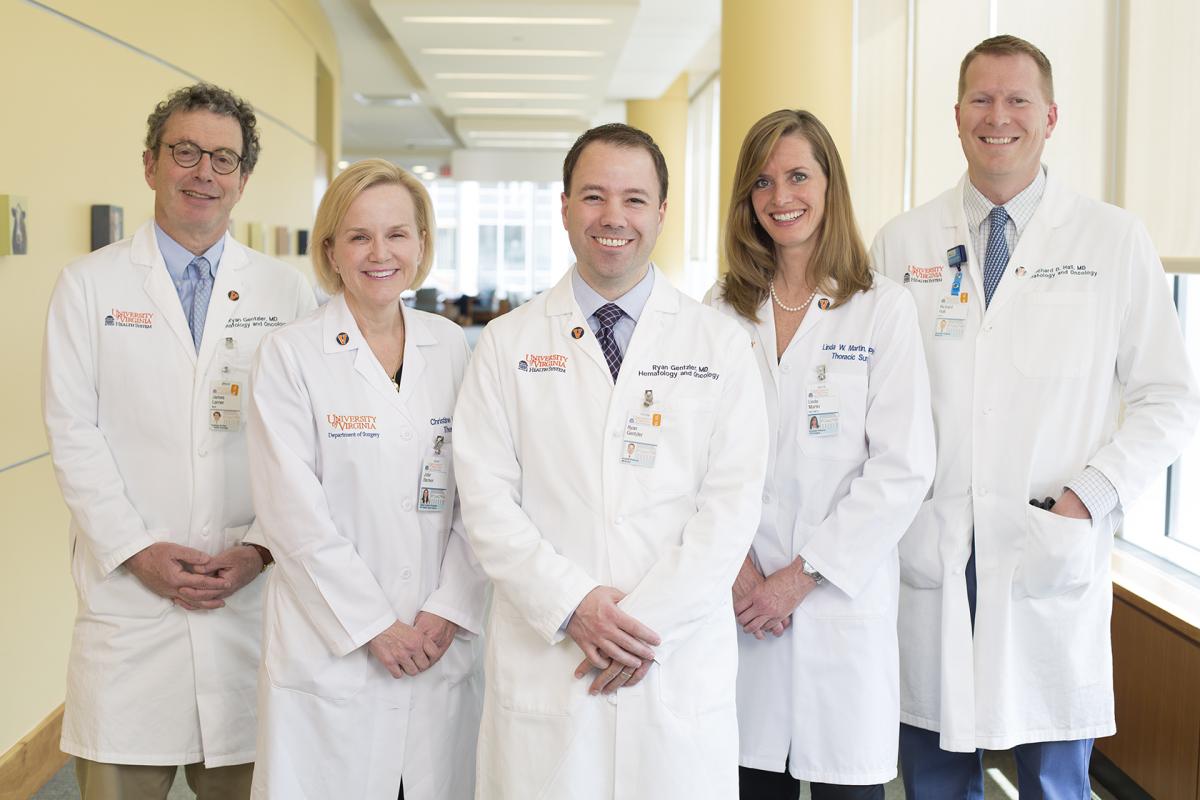Improving the Odds for Virginia's Lung Cancer Patients
It’s no secret: The best way to beat lung cancer is through prevention and early detection. That’s the message that UVA Cancer Center’s expert radiologists and lung oncologists are taking on the road. And they’re doing more than talking: They are screening at-risk individuals and offering tools for lung cancer prevention. This spring, UVA’s Lung Cancer Screening Program began seeing patients at a new satellite site, Buchanan General Hospital in Grundy, Virginia.
“Southwest Virginia has some of the highest rates of smoking and lung cancer in the country,” says radiologist Mike Hanley, medical director of the program. “Often, smaller hospitals in these communities don’t have the tools to offer practitioner effective screening and follow-up. More often, screening centers exist in urban areas, far from the patients who need them the most.”
Basic lung screening involves a low-dose CT scan that can be done at a satellite site and interpreted at UVA. Patients have full access to UVA Cancer Center resources, including remote consultations through UVA’s telemedicine network and on-site appointments with UVA specialists. The program’s goal is to identify patients at elevated risk, diagnose lung cancer in its earliest stages, and provide therapy when the disease is most treatable.
“What differentiates UVA is that, in addition to a comprehensive screening program, we provide support that goes well beyond the CT scan,” says Hanley.
Patients who undergo the screening receive information about cancer risk factors, access to a comprehensive smoking cessation program, and follow-up care. If the scan reveals a concern, patients are referred to UVA’s expert lung cancer team, including medical oncologists and thoracic surgeons.
At every stage of the process, a dedicated lung cancer screening nurse practitioner, Melissa Stanley, guides and supports patients. Stanley provides face-to-face smoking cessation counseling, education materials, and prescriptions to aid in smoking cessation.
“Having a nurse practitioner ensures that care is centralized and patients have everything they need along the way,” says Hanley. “And, of course, we are backed by a highly trained team of caregivers who focus on lung cancer and its treatment.”
“Lung cancer is the number one cause of cancer-related deaths in the United States,” adds UVA lung oncologist Richard Hall. “Through this program, we can reach a significant number of at-risk patients in underserved areas of Virginia, offering help to those who need it the most.”
Initial program funding comes from a grant from the Tobacco Region Revitalization Commission. Screening is covered by most insurance companies.

